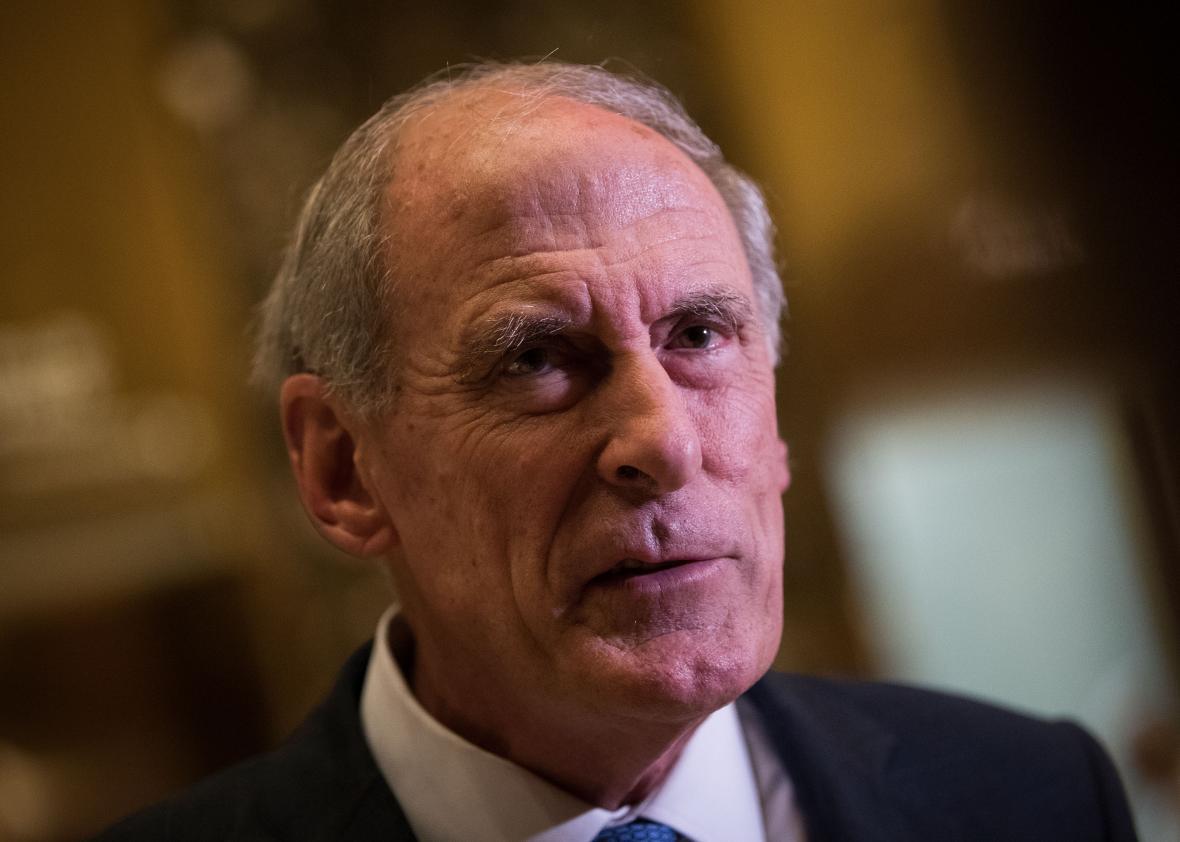The New York Times, reporting that former Indiana Sen. Dan Coats is being tapped for director of national intelligence, called the staunch homophobe “a mild-mannered conservative.” Perhaps the Times has a short memory or didn’t do much research on Coats—or perhaps its characterization is a sign of just how far rightward the right wing has recently careened. But Coats’ appointment would be one more mark of how empty—or dishonest—Donald Trump’s claim that he’s an ally of the LGBTQ community was.
As a member of the Senate Armed Services Committee, Coats fought against LGBTQ equality far more stridently than his conservative colleagues in Congress. Coats was a leading opponent of Bill Clinton’s 1993 effort to let lesbian, gay, and bisexual troops serve openly, fighting instead to retain a complete ban, a position more extreme than then–Chairman of the Joint Chiefs of Staff Colin Powell’s willingness to allow gays and lesbians to serve as long as they hid their sexual orientation. Coats claimed that equal treatment would “seriously undermine the effectiveness, the normal discipline [and] the good order” necessary to retain military capability.
He even equated permitting openly gay service with condoning sexual harassment. Lifting the ban, he said, “would allow the kind of conduct that took place at the Tailhook convention to be exempted from any military regulation.” Tailhook was a major scandal in which more than a hundred military officers were accused of sexually assaulting 83 women and seven men at a drunken Las Vegas officer symposium in 1991. Coats’ implication was that the mere presence of gay or lesbian people in uniform was tantamount to sexual assault—the kind that, in reality, was routinely perpetrated by straight commanders.
In 1993, Coats vehemently opposed the nomination of lesbian civil rights lawyer Roberta Achtenberg as assistant secretary of housing, citing her opposition to the Boy Scouts’ anti-LGBTQ ban as “an example of a radical agenda that is outside the mainstream of civil rights.” In a thinly veiled attack on Achtenberg’s sexual orientation, he said he would not support her nomination because of “some disturbing things about her background, character, and temperament.” Coats, who refused to sign a nondiscrimination policy for his own congressional office, argued that same-sex marriage was a sign of “deep moral confusion” and voted against the Hate Crimes Statistics Act, a bill that sought merely to track, not punish, bias-motivated violence.
More recently, the former senator opposed a federal bill to prohibit job discrimination against LGBTQ Americans, citing inadequate religious liberty carve-outs for religious conservatives. “We can’t pick and choose when to adhere to the Constitution, and when to cast it aside,” Coats said, apparently missing the irony of using such an argument to create precisely that very pick-and-choose option for those who wish to ignore the law.
It’s true that some of Coats’ most homophobic excesses are from a past that can now seem far behind us. Much of the country has moved leaps and bounds in their views of LGBTQ equality. Perhaps he has, too. But Coats is being tapped to oversee a critical area of U.S. government with a disastrous history of persecuting and rooting out capable gay, lesbian, and gender-nonconforming public servants, exactly the kind of thing that Trump has given the world good reason to fear in coming years. Already, social conservatives have demanded a purge of LGBTQ State Department employees, and the Trump transition team required staff at both the State and Energy Departments to turn over lists of employees involved in programs that the new administration may deem too sympathetic to issues involving women’s equality and climate change.
Memories are short. But the damage wrought by homophobic ideologues can be everlasting. Coats should be grilled on whether and how much he has evolved on LGBTQ issues before getting the nod to oversee a key intelligence apparatus of the U.S. government.
